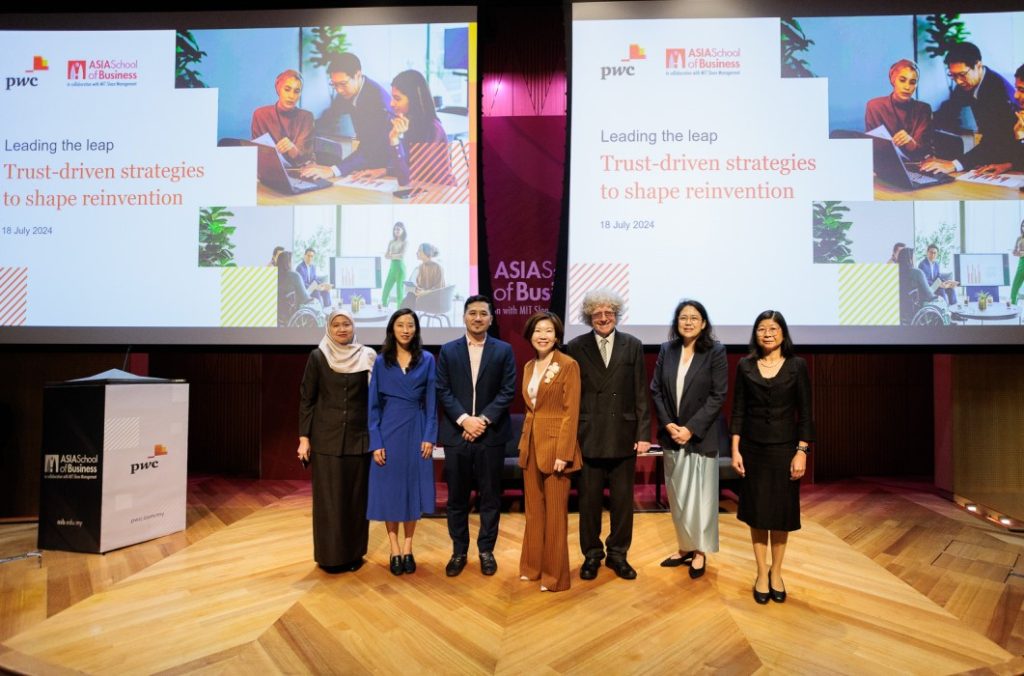From left: Nurul A’in Abdul Latif, Executive Chair at PwC Malaysia, Professor Yi-Ren Wang, Associate Professor I of Organisational Behaviour at the Asia School of Business, Arien Zackary Ritzal, Chief Talent Officer of Gentari, Lai Pei-Si, Chief Executive Officer of GXBank, Professor Dr. Michael Frese, Professor of Management at the Asia School of Business, Abigail Tay, Deputy Dean and Faculty Chair at the Asia School of Business, and Pauline Ho, Assurance Partner and the Building Trust Programme Sponsor at PwC Malaysia.
(July 18): A workforce in a high-trust organisation is 13 times more likely to enable employees to believe that the company will reward efforts fairly in the future compared to a low-trust organisation, according to PwC Malaysia’s latest report in collaboration with the Asia School of Business (ASB).
The report entitled ‘Leading the leap: trust-driven strategies to shape reinvention’ surveyed over 11,000 employees in Malaysia. This survey was conducted between August 14 and September 8 last year among the finalists of PwC Malaysia’s Building Trust Awards 2023, as part of PwC’s Building Trust programme. It assesses the level of employees’ trust and their daily experiences with their workplace social relationships.
It also explores the attributes of a workforce in a high-trust organisation, one where employees are more willing to be open and vulnerable to leaders’ decisions. They are such as a fair rewards system, a culture of openness and respect and the diversity climate of the company.
“Trust is a very important social fabric that allows a society to run smoothly and efficiently. [The survey] was done to get a good sense of how they [employees] trust their employer relative to other big entities,” said Professor Yi-Ren Wang, associate professor of organisational behaviour at ASB during her presentation on July 18 at the Khazanah Auditorium, ASB.
“Employees trust their employers and businesses the most (4.12 and 4.11 respectively), followed by non-governmental organisations (4.02), media (3.76) and the government (3.75) being the least trusted on average. Although all the scores are above the midpoint, employers and businesses played a particularly important role in establishing that trustful relationships with individual citizens allow society to run smoothly.”
Additionally, the report found behaviours around responding to innovations, in particular artificial intelligence (AI) adoption, intriguing. Employees in high-trust organisations were observed to be eight times more likely to adopt AI in the workplace and six times more likely to seek out new ways to learn and innovate, compared to employees in low-trust organisations.
Reiterating the report’s findings, Yi-Ren emphasised that there is no one-size-fits-all model for building trust. Business leaders must continuously refine their approach to earn their employees’ trust in a volatile environment.
“As the search for value and fairness intensifies, organisations also need to be mindful of interpersonal justice, that is, the degree of respect, dignity and sensitivity shown to employees. It is timely to explore the relationship between a high-trust organisation’s workforce and business reinvention, to pave the way for more meaningful discourse on trustworthiness among Malaysian organisations.” she said.





